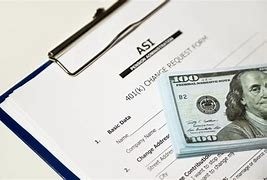
Okay, here’s a SEO-friendly intro for an article on using your 401(k) to pay off credit card debt:
Is Tapping Your 401(k) for Debt Really Worth It? The CARES Act and Your Credit Card Blues
So, you’re staring down the barrel of credit card debt. The interest rates are climbing higher than your neighbor’s new fence, & you’re feeling the pressure to find a solution. Maybe you’ve even considered tapping into your 401(k) for a financial lifesaver. After all, the CARES Act allowed for withdrawals from 401(k)s without the usual penalties. But before you grab your calculator & start crunching numbers, it’s vital to understand the pros & cons of using your retirement savings for debt relief.
This is where we come in. We’re here to help you navigate the murky waters of debt, retirement planning, & the CARES Act provisions. It’s not a simple black & white issue – there’s a lot of grey to consider. Is taking a hit on your retirement savings worth it for the potential short-term relief from crushing credit card interest?
We’ll dive deep into the ins & outs of the CARES Act provisions, examine the financial ramifications of withdrawing from your 401(k), & weigh the risks & rewards of using retirement savings to pay off debt. We’ll equip you with the knowledge to make an informed decision, one that safeguards your future while offering a pathway to financial stability.
Related Post : title vii of the civil rights act of 1964 quizlet
Let’s face it, debt can feel overwhelming. But you’re not alone. By understanding your options & weighing the potential consequences, you can take control of your finances & start paving the way to a brighter, more financially secure future.
Can You Use Your 401(k) to Pay Off Credit Card Debt? The CARES Act Explained
In the wake of the COVID-19 pandemic, many Americans faced financial hardship. The CARES Act, a stimulus package passed in 2020, aimed to offer relief to individuals and businesses. One of the key provisions of the CARES Act allowed individuals to access their 401(k) funds for specific reasons, including debt relief. But with the CARES Act provisions expiring, you might be wondering if you can still use your 401(k) to pay off credit card debt.
What is the CARES Act?
The Coronavirus Aid, Relief, and Economic Security (CARES) Act was a massive economic stimulus package passed by the U.S. Congress in March 2020. It aimed to mitigate the economic impact of the COVID-19 pandemic by providing financial assistance to individuals, businesses, and healthcare institutions.
What is the CARES Act and how does it relate to 401(k)s?
The CARES Act introduced several provisions related to retirement accounts, particularly 401(k)s. These provisions were designed to help individuals facing financial hardship due to the pandemic access their retirement savings.
When was the CARES Act passed and what was its purpose?
The CARES Act was passed on March 27, 2020. Its primary purpose was to address the economic fallout caused by the COVID-19 pandemic. It included provisions for individuals, businesses, healthcare, and the financial system, aiming to stabilize the economy and offer relief to those affected by the pandemic.
Key provisions of the CARES Act: What did it change regarding retirement accounts?
The CARES Act relaxed some restrictions on accessing retirement funds, specifically:
- Coronavirus-Related distributions: Allowed individuals to withdraw up to $100,000 from their 401(k)s or IRAs without the usual 10% early withdrawal penalty. These distributions were subject to income tax.
- Loans: Allowed individuals to borrow up to $100,000 from their 401(k)s, with the loan repayment deadline extended to five years.
How did the CARES Act impact people facing financial hardship?
The CARES Act provisions offerd a temporary lifeline to individuals facing financial hardship due to the pandemic. By allowing access to 401(k) funds, individuals could cover essential expenses, pay off debts, or address other financial needs. However, these provisions were temporary and expired in 2021.
Understanding 401(k)s and Credit Card Debt
What is a 401(k) and how does it work?
A 401(k) is a retirement savings plan offered by employers. It allows employees to contribute pre-tax dollars to a retirement account, which grows tax-deferred.
Types of 401(k) plans (traditional, Roth, etc.) and their differences
There are two main types of 401(k) plans:
- Traditional 401(k): Contributions are made with pre-tax dollars, reducing your taxable income. You pay taxes when you withdraw the funds in retirement.
- Roth 401(k): Contributions are made with after-tax dollars. Withdrawals in retirement are tax-complimentary.
Why is credit card debt a problem?
Credit card debt can be a significant financial burden due to:
- The high interest rates associated with credit cards: Credit cards typically carry high interest rates, which can quickly accrue if you only make minimum payments.
- The impact of credit card debt on your financial well-being: High credit card debt can negatively impact your credit score, limit your access to loans, and prevent you from achieving other financial objectives, such as saving for retirement or a down payment on a house.
Using 401(k) Funds for Debt: The CARES Act Exception
The CARES Act and 401(k) withdrawals: Understanding the provision
The CARES Act allowed individuals to withdraw up to $100,000 from their 401(k)s without penalty if they met certain eligibility requirements. These withdrawals were subject to income tax.
What are the eligibility requirements for accessing your 401(k) under the CARES Act?
To be eligible for a coronavirus-related distribution under the CARES Act, you had to meet one of the following criteria:
- Experienced a diagnosed case of COVID-19
- Experienced a quarantine due to COVID-19
- Experienced a job loss or reduction in hours due to COVID-19
- Experienced a reduction in pay due to COVID-19
- Had to care for a child or an elderly relative due to COVID-19
How much can you withdraw from your 401(k) under the CARES Act?
The CARES Act allowed for withdrawals of up to $100,000 per individual. The maximum withdrawal amount could be split between spouses.
The tax implications of withdrawing from your 401(k) under the CARES Act
While the CARES Act waived the 10% early withdrawal penalty, withdrawals were still subject to income tax. This means you had to report the withdrawn amount as income on your tax return.
The Pros and Cons of Using Your 401(k) for Debt
benefits of using your 401(k) for debt:
- Lowering your interest payments: Using your 401(k) funds to pay off high-interest credit card debt can save you money in the long run by reducing the amount of interest you pay.
- Potential for financial relief: Accessing your 401(k) can offer immediate financial relief, allowing you to manage debt obligations and avoid late payments or collection efforts.
Drawbacks of using your 401(k) for debt:
- Loss of retirement savings: Withdrawing from your 401(k) means you are depleting your retirement savings. This can negatively impact your long-term financial security, especially if you are close to retirement.
- Potential tax implications: As mentioned earlier, withdrawals from a 401(k) are subject to income tax. This can outcome in a higher tax bill in the year of withdrawal.
- Impact on long-term financial objectives: Using your 401(k) for debt can derail your long-term financial objectives, such as buying a home or paying for your children’s education.
Alternatives to Using Your 401(k) for Debt
If you are considering using your 401(k) to pay off debt, it is crucial to explore alternative solutions first. These options may help you manage your debt without sacrificing your retirement savings.
- Balance transfers to lower-interest credit cards: Transferring your balances to a credit card with a lower interest rate can help you save on interest payments.
- Debt consolidation loans: A debt consolidation loan can combine multiple debts into one loan with a lower interest rate. This can simplify your payments and potentially reduce your overall interest payments.
- Negotiating with creditors for lower interest rates or payment plans: Contacting your creditors and negotiating lower interest rates or payment plans can help you manage your debt more effectively.
- Credit counseling services: Credit counseling services can offer guidance and support in managing debt, developing a budget, and creating a debt repayment plan.
Should You Use Your 401(k) to Pay Off Credit Card Debt?
Assessing your individual financial situation:
- Your retirement objectives: How close are you to retirement? What is your desired retirement lifestyle?
- The severity of your credit card debt: How much credit card debt do you have? What are the interest rates on your credit cards?
- Your ability to repay the withdrawn funds: Do you have a plan to repay the withdrawn funds? Can you afford to make additional contributions to your 401(k) to replenish the withdrawn amount?
Exploring alternative solutions to debt relief
Before making a decision, thoroughly explore the alternative debt relief options mentioned earlier.
Seeking professional financial advice
It is highly recommended to consult with a qualified financial advisor who can help you assess your financial situation, understand the implications of using your 401(k) for debt, and develop a personalized financial plan.
Conclusion: Making the Right Decision
The CARES Act offerd a temporary chance to access 401(k) funds for specific reasons, including debt relief. However, these provisions have expired, and you should carefully weigh the pros and cons before making a decision about using your 401(k) for debt.
It’s crucial to prioritize long-term financial stability and planning for retirement. If you are struggling with debt, explore alternative solutions and seek professional financial advice to make informed decisions that will benefit your overall financial well-being.

Leave a Reply